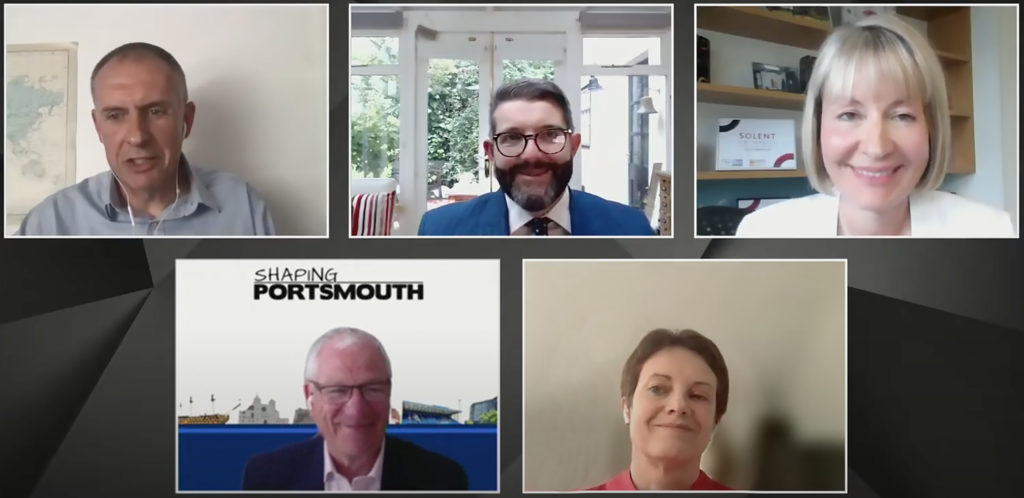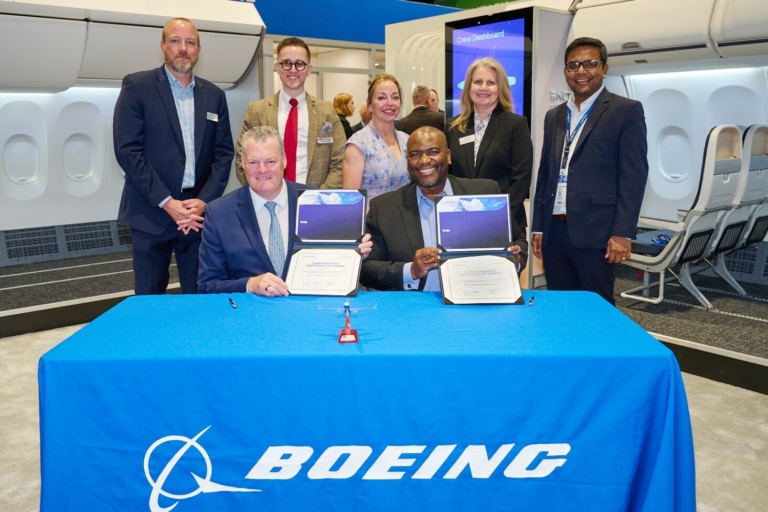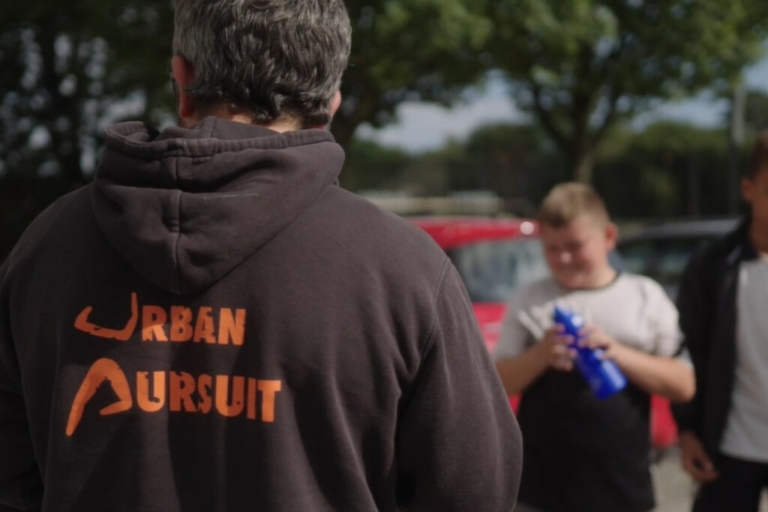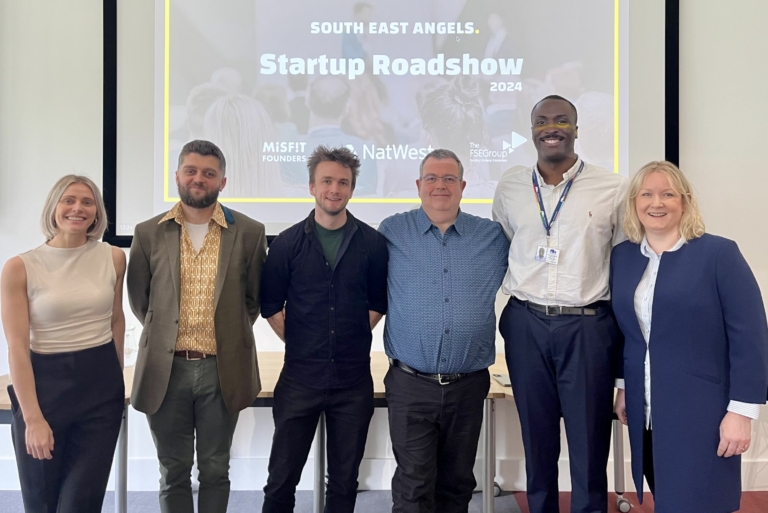Solent future skills webinar: challenges, opportunities and optimism

Five high-profile influencers from business, public policy and academia shared their views on the opportunities, challenges and future of work in the Solent. They discussed government support for skills training, how technology enables change, post-pandemic work patterns and upskilling for the Solent freeport. The webinar was sponsored by KPMG.
The panelists (from top left)
- Panel chair: David Lee – broadcaster and journalist
- Mark Essex – director of skills, KPMG (and pictured above)
- Professor Karen Stanton – vice-chancellor Solent University
- Stef Nienaltowski – CEO, Shaping Portsmouth
- Brooke Hoskins – product & training services director, BAE Systems

An audience poll held during the online webinar asked which skills people thought will be most valuable in the future workplace. The top three answers were adaptability, flexibility and communication. The most popular response to the question ‘where do you stand on returning to the office?’ was ‘I’ll go in for important set-pieces’.
The webinar began with a strong call to action for locally-based solutions to address skills gaps by the Rt Hon Anne Milton, former minister of state for skills & apprenticeships. She admitted Whitehall was “not always the best driver of change” on skills development.

“I think there is a very good case for devolution, with regions and local businesses more involved in the questions about meeting skills needs,” she said.
Bringing business and education closer
The Covid-19 pandemic has accelerated the upskilling process, thought Milton, who advised Solent employers to focus on groups of potential recruits who they might not usually consider.
“I call on businesses to look for skills in groups that wouldn’t automatically come to them. Contact your local schools and colleges to talk to young people about the opportunities of working for you,” she said.
She also wondered whether graduate degrees were always fit for purpose for today’s requirements, urging local businesses: “Don’t be fussy about qualifications.”
Flagging up the Government’s ‘Skills Bill’ (the Skills and Post-16 Education Bill), Milton said: “I think there are brilliant opportunities for Solent businesses to talk to universities and say ‘these are the skills that are essential in the workplace’. Programmes on leadership skills, team working, digital skills and networking should be part of an undergraduate degree.”
Picking up on her points, broadcaster and journalist David Lee, the panel’s chair, asked:
Do we look too much to Government and do we need more local autonomy?
Professor Karen Stanton agreed with Milton about the benefits of local initiatives: “We have a fantastic opportunity in the Solent region to come together and really focus on the skills agenda and determine a ‘local skills ladder’ that gives people opportunities.”
She added: “Universities are constantly looking to work with business and industry on the curriculum. At Solent University, we focus on ‘real-world learning’ that exposes students to internships and work placements.”
Is the education system slow to react to what businesses need?
“Yes, too slow,” said Stef Nienaltowski. “That’s not a criticism, it is simply that the market is very dynamic. So, you have to find a way of making sure the education curriculum can improve the skills that businesses need.”
What do local businesses think about the skills gap?
The panel was concerned that a skills gap could thwart the post-pandemic ambitions of businesses.
A survey of 300 local businesses by Shaping Portsmouth found they were short of management, leadership, IT and engineering skills. But businesses are partly to blame for this skills gap, suggested Nienaltowski: “Our experience is that graduates are not necessarily prepared because businesses are not investing time to work with education establishments to say what they need.”
Mark Essex thought businesses should take a more broad-brush approach in assessing candidate skills. “I think businesses need to sift potential applications and look deeper, for example, things people did at university that provide qualities like judgement and adaptability, not just how well they did in exams,” he said.
Finding engineers is a struggle for BAE Systems, noted Brooke Hoskins. “We put a lot of time and effort into our STEM (science, technology, engineering and maths) outreach. As well as apprenticeships and graduates we are also investing in older people. We have been very successful in attracting STEM returners after career breaks. Also, Covid-19 has given us the opportunity to open up the pools of where we look for people.”
Are businesses tapping into virtual talent in the post-pandemic world?
Not everyone can work from home during the pandemic, Hoskins pointed out. “Not if your job is developing a ballistic missile defence network! But the majority of our job roles can be done from anywhere in the UK.”
One of Solent University’s priorities is preparing students for the world of work. “For us, it’s about ensuring graduates are work-ready and future-ready. How we teach is changing, with a mix of online and face-to-face. I think this will help students to prepare for different working environments,” said Stanton.
Remote working is bringing hidden talents to the fore, Essex believes: “When you ask people to try something new you can find, for example, that introverts love virtual events. Some people have really found themselves and exploited the new ways of working. This is creating a new diversity – where businesses are tapping into the talent that they already have.”
What lessons have businesses learned from the pandemic about how people want to work?
Essex highlighted the drawback for younger people joining companies missing the advantages of networking. “I can use my business relationships – the social capital that I’ve built up over the years. What about youngsters starting out in work who haven’t yet been able to build that platform from the physical world of work?” he asked.
For larger businesses like BAE Systems, Hoskins said a lesson learned has been to trust employees. “I think our previous 8am-5pm, five-days-a-week culture contributed to a lack of diversity and creativity. There are logistical challenges to new ways of working, so you shouldn’t try and control things centrally. You need to trust and empower people to make decisions at a local level.”
As for smaller businesses in the region, the availability of low-cost co-working space is proving to be a significant benefit, said Nienaltowski: “Last year, Portsmouth was named the sixth best city in the UK to start a business. We have plenty of co-working spaces that are ‘easy in and easy out’, including at the university and in a converted church hall. They are incredibly cool and funky.”
Will training opportunities meet the demands of the Solent freeport?
Stanton thought the Government’s Institutes of Technology initiative for employer-focused delivery of technical skills will benefit the region. “It could potentially bring key skills into the freeport, if we are successful in getting funding, by providing qualifications from A-levels to Masters degrees.”
Your one takeaway…
Mark Essex: “Be much more granular in analysing the skills people have and what a job description might need. It’s not just about the job title but the set of skills underneath.”
Brooke Hoskins: “A career in STEM will set you up for life.”
Professor Karen Stanton: “Talent is everywhere across the region, but opportunity is not. It’s important that business leaders focus on this.”
Stef Nienaltowski: “Focus on communication – between schools, higher and further education and businesses – in a sustainable partnership that inspires people to reach the ceiling of their ambition.”
View the full webinar











